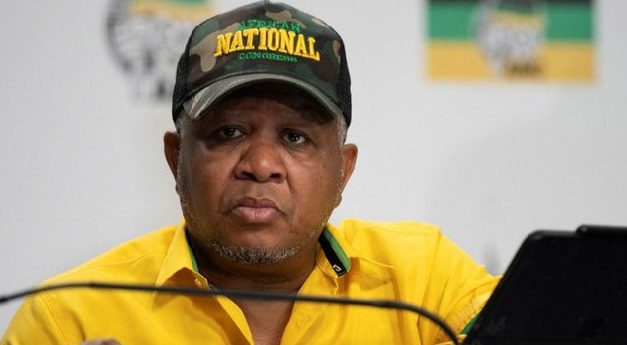ANC Secretary-General Fikile Mbalula faces intense backlash from his own top leadership after allegedly operating a secretive budget negotiation team without the knowledge or approval of the party’s national executive.
According to multiple party insiders, Mbalula assembled an unofficial group to engage stakeholders on critical budget and economic policy matters, bypassing established ANC structures. The covert operation, active for weeks, was only recently uncovered, triggering outrage among senior officials.
A senior ANC leader, speaking on condition of anonymity, called the move “reckless and factional,” accusing Mbalula of sidelining collective decision-making. “The top seven were completely unaware—this was never discussed or authorized,” the source said. “It’s a serious breach of trust and raises questions about what exactly was being negotiated behind closed doors.”
While the composition of Mbalula’s alleged parallel team remains unclear, reports suggest it included former government officials and policy advisers linked to his office. Their discussions reportedly touched on Treasury matters and budget negotiations tied to the Government of National Unity (GNU), where the ANC governs in coalition with the DA and other parties.
The controversy came to a head during a heated ANC leadership meeting last week, where Mbalula was confronted over the allegations. Sources say he defended the initiative as a necessary measure to safeguard the party’s interests in complex negotiations. However, his justification reportedly did little to calm tensions, with some leaders viewing the move as a power grab that flouted ANC protocols.
Mbalula has remained silent on the matter publicly, and the ANC has not issued an official response. However, pressure is growing within the party for a formal investigation and stricter guidelines on the roles of senior officials in sensitive policy discussions.
The fallout comes at a precarious time for the ANC, which is already navigating strained coalition dynamics and public skepticism over its economic management. Political analysts warn that such internal divisions could further erode the party’s cohesion and weaken its governance at a time when stability is crucial.
“If the ANC’s own leadership can’t agree on who negotiates what, it raises serious concerns about their ability to steer the country through its current challenges,” said political analyst Lebohang Pheko. “This isn’t just an internal spat—it’s a crisis of accountability that could have real consequences for South Africa.”
As calls for clarity grow, the ANC faces mounting pressure to address the allegations head-on or risk deepening perceptions of dysfunction within its ranks.






















